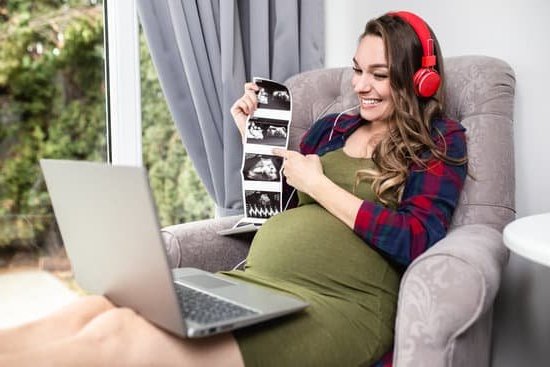When will pregnancy test be positive? Understanding the basics of pregnancy tests is crucial for those trying to conceive. Pregnancy tests work by detecting the hormone hCG, which is only present in a pregnant woman’s body. The timing of when to take a pregnancy test can greatly impact its accuracy, as certain factors such as medications, medical conditions, and lifestyle choices can affect the results.
It’s important to note that hCG levels may not be detectable immediately after conception, leading to false negative results if the test is taken too early. Early signs of pregnancy may appear before a positive test result, causing confusion for some women. Home pregnancy tests are commonly used due to their convenience, but blood tests done at a healthcare provider’s office are more accurate.
Despite taking necessary precautions, false negative results can still occur. To ensure accurate testing and know when to retest, it’s best to follow certain tips for best results. Patience is key during this waiting period and seeking medical advice if in doubt is always recommended. Understanding the complexities of pregnancy testing can help individuals navigate this important stage with more knowledge and confidence.
How Pregnancy Tests Work
Pregnancy tests work by detecting the presence of human chorionic gonadotropin (hCG) in a woman’s urine or blood. HCG is a hormone produced by the placenta shortly after implantation occurs, which typically happens around 6-12 days after ovulation. The levels of hCG increase rapidly in the early stages of pregnancy, doubling approximately every 48-72 hours. This hormone is what triggers a positive result on a pregnancy test.
There are various types of pregnancy tests available, including home tests and blood tests performed at medical clinics. Home pregnancy tests are convenient, affordable, and easy to use. They detect hCG in urine samples with results usually displayed within a few minutes. On the other hand, blood tests can detect lower levels of hCG earlier than urine tests, offering more accurate results especially in cases of early pregnancy or when there are concerns about potential complications.
When considering how pregnancy tests work, it’s important to note that while most home tests claim to be accurate as early as the first day of a missed period, waiting until closer to one week after a missed period can increase the likelihood of obtaining an accurate result. Testing too early can potentially lead to false negative results due to low levels of hCG that may not yet be detectable by the test.
It’s crucial to follow the instructions provided with each test and consult with a healthcare provider if unsure about the timing or interpretation of results.
The Timing Factor
Typically, the best time to take a home pregnancy test is after you have missed your period. However, some tests on the market claim to detect pregnancy before your missed period, but accuracy may vary. For the most reliable results, it is recommended to wait until at least one week after your missed period before taking a home pregnancy test. This allows enough time for hCG levels to rise and be detected in your urine.
If you cannot wait until after your missed period and are eager to find out if you are pregnant earlier, you can opt for a blood test at your healthcare provider’s office. Blood tests can detect lower levels of hCG much earlier than most home pregnancy tests.
Your healthcare provider can also monitor the increase in hCG levels through multiple blood tests over time to confirm pregnancy. Ultimately, patience is key when waiting for accurate results from a pregnancy test.
| Best Time to Take Test | Accuracy Expectation |
|---|---|
| After missed period | Most reliable results |
| Before missed period | Accuracy may vary |
Factors Affecting Test Results
Medications
Certain medications can affect the accuracy of a pregnancy test. For example, fertility drugs containing hCG hormone can lead to false positive results on a home pregnancy test. On the other hand, medications like antihistamines and diuretics may not interfere with pregnancy test results. It’s essential to consult with a healthcare provider or pharmacist about any medications you are taking before taking a pregnancy test to ensure accurate results.
Medical Conditions
Medical conditions such as polycystic ovary syndrome (PCOS), ovarian cysts, and certain types of cancer can also impact the reliability of a pregnancy test. These conditions can cause elevated levels of hCG in the body even when not pregnant, leading to false positive results.
Additionally, conditions like kidney disease or urinary tract infections can affect the concentration of hCG in urine, potentially influencing the outcome of a pregnancy test. If you have concerns about how your medical condition may affect a pregnancy test result, it’s best to consult with a healthcare provider for guidance.
Lifestyle Choices
Lifestyle choices such as excessive alcohol consumption, smoking, and drug use can also impact the accuracy of a pregnancy test. These substances can interfere with hormonal levels in the body, potentially affecting hCG production and detection in urine or blood samples.
It’s important to maintain a healthy lifestyle when trying to conceive or suspecting pregnancy to ensure reliable test results. If you have any doubts about how your lifestyle choices may be affecting the outcome of a pregnancy test, seek guidance from a healthcare provider for appropriate advice and support.
Early Signs of Pregnancy
When it comes to early signs of pregnancy, many women may experience symptoms even before a pregnancy test shows a positive result. Some of the common early signs include missed periods, nausea, breast tenderness, fatigue, frequent urination, and heightened sense of smell. These symptoms can vary from woman to woman and may not be experienced by everyone.
It is important to note that just because you are experiencing these early signs, it does not guarantee that a pregnancy test will immediately be positive. The hormone hCG (human chorionic gonadotropin) is what is detected in pregnancy tests to confirm pregnancy. This hormone may not be present in high enough levels in the early stages to produce a positive result on a test.
According to healthcare professionals, hCG levels typically start to rise around 10 days after conception. It is recommended to wait until after you have missed your period to take a home pregnancy test for more accurate results.
However, some sensitive tests claim they can detect hCG even before a missed period – this varies depending on the brand and sensitivity of the test. If you get a negative result but still suspect you might be pregnant based on symptoms, wait a few days and retest for confirmation.
| Early Pregnancy Symptom | Description |
|---|---|
| Missed Periods | One of the most common early signs of pregnancy. |
| Nausea | May experience morning sickness or nausea throughout the day. |
| Breast Tenderness | Breasts may feel sore or sensitive. |
Types of Pregnancy Tests
When it comes to confirming a pregnancy, there are two main types of tests available: home pregnancy tests and blood tests. Home pregnancy tests, also known as urine tests, are convenient and easily accessible at drugstores or online.
These tests work by detecting the hormone human chorionic gonadotropin (hCG) in urine, which is produced by the placenta after a fertilized egg attaches to the uterine lining. Most home pregnancy tests claim to be accurate as early as the first day of a missed period, although some may suggest waiting a few days for more reliable results.
On the other hand, blood tests for hCG can provide even earlier detection of pregnancy. Blood tests can measure much lower levels of hCG than urine tests, making them more sensitive and able to detect pregnancy sooner after conception.
There are two types of blood tests: quantitative hCG blood test measures the exact amount of hCG in the blood, while qualitative hCG blood test simply confirms whether or not hCG is present. Blood tests are often ordered by healthcare providers to confirm pregnancy when there is uncertainty or if early results from a home pregnancy test are conflicting.
It’s important to note that both home and blood pregnancy tests are highly accurate when used correctly. However, it’s essential to follow the instructions carefully and use these tests at the appropriate time for best results.
Additionally, factors such as medications, medical conditions like polycystic ovary syndrome (PCOS), and lifestyle choices like excessive alcohol consumption can affect test results. If you suspect you may be pregnant but receive a negative result on a home test, consider consulting with healthcare provider for further guidance on when to retest or if a blood test is necessary for confirmation.
False Negative Results
When it comes to pregnancy tests, getting a negative result when you are actually pregnant can be quite confusing and frustrating. This phenomenon is known as a false negative result, which occurs when the test fails to detect the presence of hCG (human chorionic gonadotropin) hormone in the urine or blood sample. Understanding why this can happen is crucial for those who may be trying to conceive or suspect they are pregnant.
Reasons for False Negative Results
There are several reasons why a pregnancy test could show a negative result even when a woman is pregnant. One common reason is taking the test too early in the pregnancy before hCG levels have had a chance to rise to detectable levels.
It is recommended to wait at least a week after a missed period to take a home pregnancy test for more accurate results. In some cases, implantation bleeding may also cause confusion, as it can be mistaken for a light period and lead to testing too early.
Another factor that can contribute to false negative results is using an expired or faulty pregnancy test kit. It is essential to check the expiration date and follow the instructions carefully when taking the test.
Additionally, diluting urine by drinking too much water before testing or not using the first morning urine sample can also impact the accuracy of the results. Other factors such as certain medications, medical conditions like polycystic ovary syndrome (PCOS), and lifestyle choices like smoking can also affect hCG levels and lead to false negatives.
When to Retest
If you suspect you are pregnant but receive a negative result on a home pregnancy test, it is advisable to wait a few days and retest. As hCG levels double every 48-72 hours in early pregnancy, giving your body some time to increase these levels can help ensure more accurate results on subsequent tests.
If you continue experiencing symptoms of pregnancy but still receive negative results, consulting with a healthcare provider for further testing, such as blood tests, may be necessary for confirmation. Patience and proper timing are key when it comes to determining pregnancy status through testing methods.
Tips for Best Results
When it comes to taking a pregnancy test, ensuring accurate results is key. There are several tips that can help maximize the accuracy of the test and provide you with clear answers. One important tip is to carefully read and follow the instructions provided with the test kit.
Each brand may have slightly different instructions, so it’s essential to follow them closely to ensure reliable results. Additionally, it’s advisable to use your first morning urine for the test, as this is when hCG levels are typically most concentrated.
Another important factor in obtaining accurate results is timing. To increase the likelihood of a positive result, it’s best to wait until after you have missed your period before taking a home pregnancy test.
Testing too early can result in a false negative, as hCG levels may not be high enough to be detected by the test. If you suspect you may be pregnant but receive a negative result, it’s recommended to wait a few days and retest for more accurate results.
Furthermore, if you get a negative result but still experience symptoms of pregnancy or have doubts about the accuracy of the test, it’s crucial to seek medical advice. A healthcare provider can perform a blood test, which can detect lower levels of hCG earlier than most home pregnancy tests.
Remember that every individual is different, and various factors can affect when a pregnancy test will be positive. Being patient and seeking professional guidance when needed are essential steps in navigating the process of taking a pregnancy test.
Conclusion
In conclusion, understanding the timing and factors affecting pregnancy test results is crucial in determining when a pregnancy test will be positive. While many women may be eager to take a test as soon as possible, it’s important to remember that the accuracy of the result depends on various factors such as hCG levels, medications, medical conditions, and lifestyle choices.
Patience is key when waiting for a positive result, as taking the test too early can lead to false negatives.
If you suspect you may be pregnant but receive a negative result on a home pregnancy test, it’s essential to seek medical advice. A healthcare provider can offer guidance on when to retest or recommend a blood test for more accurate results. They can also address any concerns or questions you may have about your fertility and options moving forward.
Ultimately, while pregnancy tests are useful tools for confirming pregnancy, patience and proper timing are essential. Remember that each woman’s body is unique, and what works for one person may not apply to another. Trusting your instincts and seeking medical advice when in doubt will ensure you receive the best care possible during this important time in your life.
Frequently Asked Questions
How Soon Will a Pregnancy Test Read Positive?
A pregnancy test can typically read positive as early as 10-14 days after conception, depending on the sensitivity of the test used. It is best to wait until after a missed period for accurate results.
How Late Were You Before Positive Pregnancy Test?
It is possible to receive a positive pregnancy test result even if you are just a few days late for your period. However, it is recommended to wait at least one week after your missed period for the most reliable results.
How Soon Will a Pregnancy Test Read Positive Clearblue?
The Clearblue pregnancy test is designed to detect pregnancy hormones in urine as early as 6 days before your missed period. This early detection capability makes it one of the more sensitive tests on the market, but accuracy may vary based on individual factors like hormone levels.

Welcome to my fertility blog. This is a space where I will be sharing my experiences as I navigate through the world of fertility treatments, as well as provide information and resources about fertility and pregnancy.





